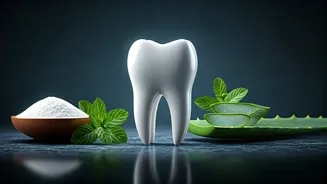Understanding Kidney Stones
Kidney stones are hardened mineral deposits that form inside the kidneys. These stones can range in size from a grain of sand to a golf ball and cause
severe pain when they move through the urinary tract. The common symptoms include intense pain in the side and back, blood in the urine, nausea, vomiting, and frequent urination. Risk factors for developing kidney stones include dehydration, family history, certain diets high in sodium and animal protein, and underlying medical conditions. The pain associated with kidney stones often stems from their obstruction of urine flow, leading to pressure build-up and inflammation within the urinary system. Different types of kidney stones exist, with calcium stones being the most prevalent, followed by struvite, uric acid, and cystine stones. Early diagnosis and treatment are crucial to prevent complications such as kidney damage or infections. Medical interventions often involve pain management, medication to facilitate stone passage, and in some cases, surgical procedures or lithotripsy to break down or remove the stones.
Ayurveda's Perspective On Stones
In Ayurveda, kidney stones are viewed as a result of an imbalance in the body's doshas, primarily Vata and Pitta. Vata dosha, responsible for movement, can cause the blockage in the urinary system, while Pitta dosha, associated with heat and metabolism, may contribute to the formation of stones. Ayurvedic practitioners believe that the accumulation of ama (toxins) and the disruption of Agni (digestive fire) are key factors in stone formation. This disruption affects the body's ability to eliminate waste efficiently. Ayurvedic treatments aim to restore the balance of the doshas, eliminate ama, and strengthen Agni. They utilize herbs, dietary changes, and lifestyle modifications tailored to the individual's constitution. According to Ayurvedic principles, the kidneys and urinary system are closely linked to the overall health of the body. Addressing the root causes of the imbalance, rather than just treating the symptoms, is the primary focus. Therefore, Ayurvedic treatment plans are highly personalized, considering individual needs and circumstances. The focus is on achieving holistic well-being and preventing the recurrence of stones.
Ayurvedic Treatments Explored
Ayurvedic treatments for kidney stones often involve a combination of herbal remedies, dietary adjustments, and lifestyle changes. Some commonly used herbs include Pashanbhed (Saxifraga ligulata), known for its diuretic properties, which may help to flush out the stones. Punarnava (Boerhavia diffusa) can support kidney function. Gokshura (Tribulus terrestris) is often used to promote urinary health and reduce stone formation. Other beneficial herbs include Varuna (Crataeva nurvala) and Kulattha (Dolichos biflorus). Dietary modifications are crucial, with an emphasis on increasing fluid intake to help flush out stones and prevent dehydration. Diets high in oxalates, found in certain foods like spinach and rhubarb, are often avoided or limited. Ayurvedic practitioners may recommend specific dietary plans tailored to the individual's dosha imbalances. Lifestyle changes may include regular exercise, stress reduction techniques, and avoiding sedentary habits that can contribute to stone formation. The aim is to promote overall well-being and prevent recurrence of stones. Yoga and meditation are often incorporated into treatment plans to reduce stress and improve overall kidney health.
Dietary And Lifestyle Changes
Dietary adjustments play a crucial role in the Ayurvedic management of kidney stones. Increasing fluid intake, particularly water, is a primary recommendation to facilitate the flushing of stones and prevent dehydration. Patients are encouraged to drink at least 2–3 liters of water daily. Foods high in oxalates, like spinach, rhubarb, chocolate, and nuts, are often limited to reduce the risk of stone formation. A balanced diet rich in fruits and vegetables, low in sodium and animal protein, is generally recommended. Including foods with diuretic properties, such as cucumber and watermelon, can further support kidney health. Besides diet, lifestyle changes are also essential. Regular physical activity promotes overall well-being and supports the kidneys' optimal functioning. Gentle exercises such as walking and yoga can be particularly beneficial. Reducing stress through practices like yoga and meditation is recommended, as stress can contribute to overall health imbalances. Avoiding a sedentary lifestyle and maintaining a healthy weight are also crucial for preventing kidney stones. Adequate rest and sleep are important for overall health.
Ayurvedic Herbs Explained
Several Ayurvedic herbs are used to address kidney stones, each with unique properties and benefits. Pashanbhed (Saxifraga ligulata) is a well-known herb for its diuretic effects, helping to flush out kidney stones. It can also reduce inflammation and ease the pain associated with stones. Punarnava (Boerhavia diffusa) supports kidney function. Gokshura (Tribulus terrestris) promotes urinary health, and can potentially reduce the formation of stones. Varuna (Crataeva nurvala) is another herb that supports kidney function, and may help to break down and eliminate stones. Kulattha (Dolichos biflorus) is often used in Ayurvedic preparations to promote overall health and urinary health. These herbs are typically taken in various forms, such as powders, decoctions, or capsules. It's essential to consult a qualified Ayurvedic practitioner before using herbal remedies. They can assess the individual's dosha imbalances and recommend appropriate herbs and dosages. This ensures the treatment is safe and effective. The combination of these herbs, when appropriately utilized, can offer relief from symptoms and help prevent the recurrence of kidney stones.
Combining Ayurveda and Modern Medicine
The integration of Ayurvedic principles with modern medical practices can provide a comprehensive approach to treating kidney stones. Ayurveda offers holistic methods for balancing the body, while modern medicine provides advanced diagnostic and treatment options. Collaboration between an Ayurvedic practitioner and a conventional healthcare provider can benefit patients. Combining modern treatments like lithotripsy or medication to dissolve or pass stones with Ayurvedic supportive care can improve overall outcomes. Ayurvedic treatments can support the body's natural healing abilities, reducing the chances of stone recurrence. Ayurvedic herbs may be used in conjunction with modern medications, but it is crucial to monitor potential interactions. Diet and lifestyle recommendations from Ayurveda complement modern medical advice. Patients can benefit from the combined approach by gaining a wider range of treatment options and a better understanding of their health. This integrated approach can promote overall wellness, manage symptoms effectively, and support long-term health. Open communication between medical professionals and patients is vital for optimal care and improved results.
Important Considerations And Cautions
While Ayurveda offers potential benefits in managing kidney stones, several important considerations and precautions must be taken. It is essential to consult a qualified Ayurvedic practitioner before starting any Ayurvedic treatment. They can assess the individual's constitution and create a treatment plan. Self-treating with herbal remedies can be risky and may not be suitable for everyone. Always inform your doctor about any Ayurvedic treatments. Certain herbs may interact with modern medications or have side effects. Pregnant or breastfeeding women, and those with chronic medical conditions, should seek expert advice before starting any Ayurvedic treatments. Ayurvedic therapies are often used to manage the symptoms of kidney stones, and should be accompanied by modern medical care to get a full diagnosis. The treatment outcomes may vary depending on the stone's type, size, and location. Adhering to dietary and lifestyle recommendations is crucial for optimal results. Regular follow-up with both an Ayurvedic practitioner and a modern medical provider is recommended to monitor the progress and make necessary adjustments.












